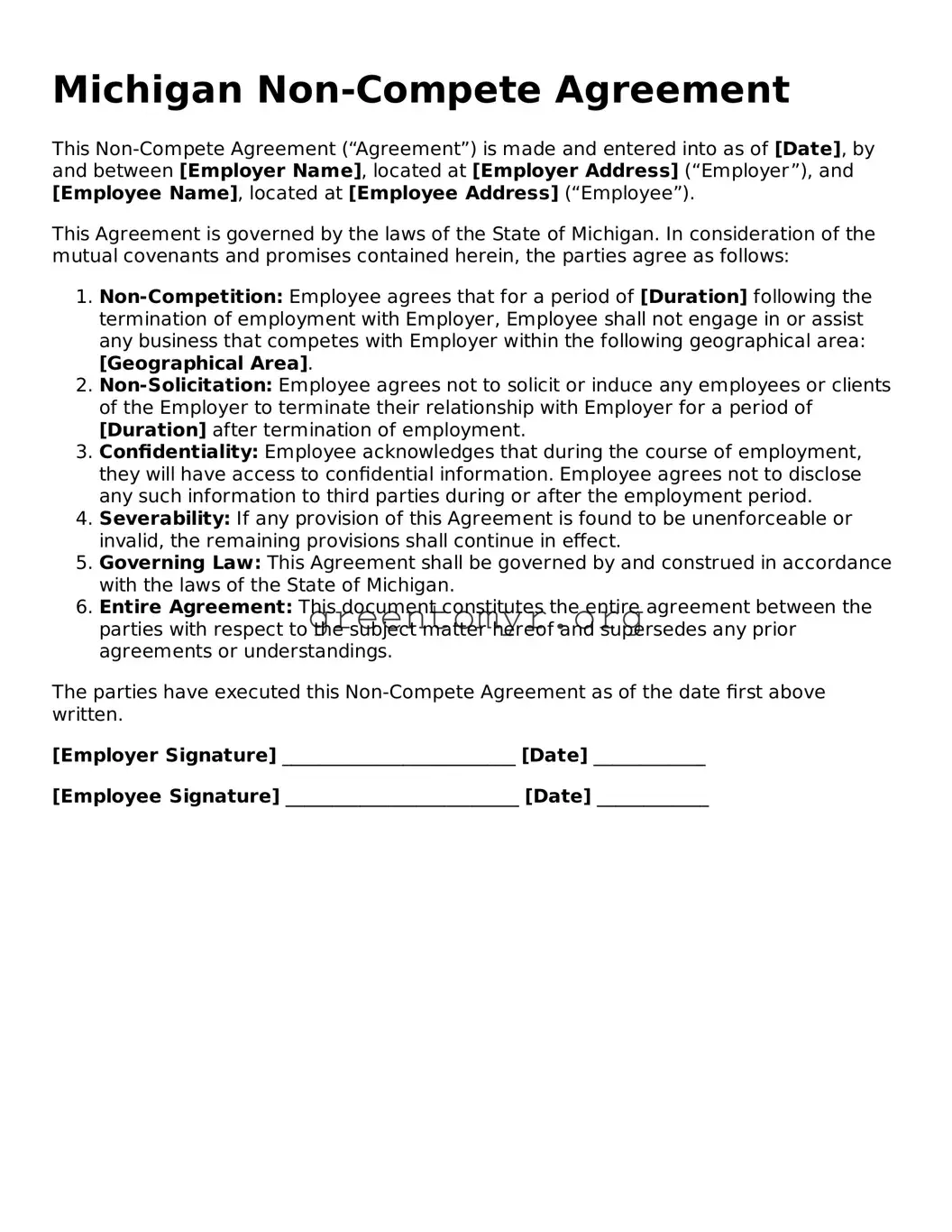Filling out a Michigan Non-compete Agreement can be straightforward, but many people make avoidable mistakes that could affect the agreement's enforceability. One common error occurs when individuals do not fully understand the terms of the agreement before signing. This lack of understanding can lead to signing away rights that they may not fully comprehend, which can have long-term consequences.
Another mistake often made involves omitting important details. It's critical for the document to clearly outline the scope of the non-compete, including what specific activities are restricted. If these details are vague, it can leave room for interpretation and potential disputes down the line.
People sometimes fail to consider the duration of the non-compete period. A common pitfall is agreeing to an excessively long time frame, which may be viewed as unreasonable by a court. Typically, shorter non-compete periods are more likely to be enforced, while longer periods can be challenged as overly restrictive.
Additionally, a common mistake is overlooking geographical restrictions. Individuals may neglect to define the geographical area where the non-compete applies. Without clear parameters, the agreement may become too broad, risking its enforceability. The location should be relevant and reasonable to the industry to ensure that it holds water in a legal sense.
Another frequent oversight is not having the agreement reviewed by a legal professional. Engaging a lawyer who is knowledgeable about employment law can provide insights and help identify problematic clauses that may weaken the agreement. Ignoring this step can lead to headaches later if issues arise.
Many people also fail to negotiate terms that do not align with their needs. Assuming that the terms provided by an employer are non-negotiable limits an ability to advocate for a more favorable agreement. It's important to recognize one’s worth and the value of achieving a fair arrangement.
Moreover, people may rush through the process of filling out the form. Taking time to thoroughly read and understand each section is crucial. Hurrying may result in errors or omissions that could render the agreement unenforceable.
Another common mistake is not keeping a copy of the signed agreement. Individuals often assume that employers will provide this, but it's wise to retain a copy for personal records. A retained copy can help clarify expectations or provide evidence in case of disputes in the future.
Lastly, individuals might overlook the necessity of other related agreements. A non-compete may be part of a larger package that includes non-disclosure or non-solicitation clauses. Ensuring all agreements are aligned and consistent is essential for maintaining enforceability.
